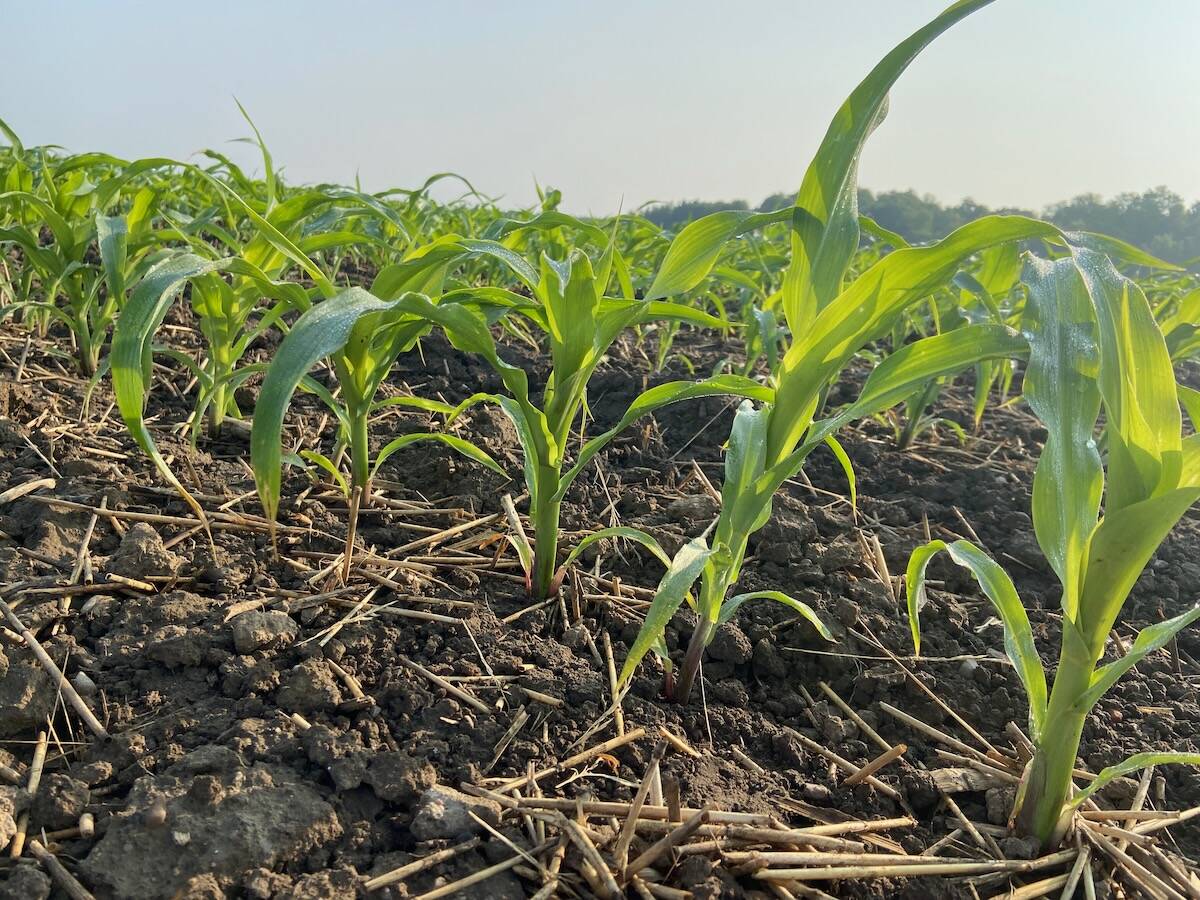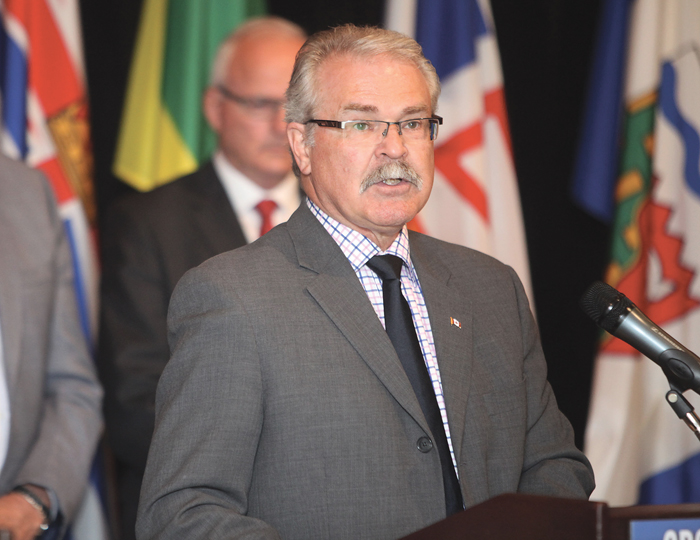If Agriculture Minister Gerry Ritz gets his way, farmers who sell to feed mills will be protected under the proposed Canadian Grain Commission’s (CGC) producer payment security program.
“My direction to them (CGC) is find a way to incorporate feed mills,” Ritz said in an interview Jan. 9. “The direction is, yes, they will be covered. The grain commission’s homework is to find what is the best way to do it.”
Last month, when CGC discussed amendments to the Canada Grain Act contained in Bill C-48, the Modernization of Canada’s Industry Act, officials said they would consult the industry about adding feed mills. While there will be talks, the plan is to include feed mills along with grain companies under the legislation, Ritz said.
Read Also

Can we trust the USDA crop data anymore?
Indications that farmers, analysts and traders have started to lose trust in data from the United States Department of Agriculture are hardly a surprise.
“We need to look at how we incorporate them (feed mills)… to make sure farmers receive the majority of their money when they deliver,” he said.
“In my mind it is more the commercial-size ones (feed mills) — the ones that actually buy from producers. I’m not talking about a farm-only or Hutterite-only feed mill. I’m talking about the big guys that buy from farmers…”
Currently, feed mills are exempt. Only western Canadian grain buyers licensed by the CGC are obliged to post security to cover what they owe farmers for delivered grain.
Lobbying
The Keystone Agricultural Producers (KAP) started lobbying to include feed mills after Puratone, a Manitoba feed mill and hog-producing company, went into creditor protection in September 2012. Grain farmers were owed an estimated $1.5 million for unpaid-for grain.
Major changes to the grain act and CGC were proposed in 2012 and took effect Aug. 1, 2013 as part of a controversial 457-page omnibus bill. They included making inward inspection at export terminals voluntary, and if requested, carried out by private providers, not CGC inspectors.
That’s also when the government compelled the CGC to cover its operating costs. With that came higher CGC fees charged to grain companies and farmers, although they would be much higher had inward inspection not been made optional.
But not all the changes the government had said it wanted were included in the 2012 legislation, including changes to the CGC’s mandate and governance.
C-48 does change the CGC’s mandate to operate for the good of Canada, not just farmers.
But there had also been talk of replacing the three government-appointed commissioners who oversee the CGC with a president/chief executive officer.
“I’m a firm believer in if it ain’t broke don’t fix it,” Ritz said when asked about the apparent shift in policy.
“We’ve got a good working relationship across the spectrum with the three commissioners. Each one brings different expertise to the fore. To limit that to a president and some other people under him doesn’t have the same effect.”
Tradition
Governments have traditionally tried to appoint commissioners that represent the grain industry, farmers and the three Prairie provinces. There’s usually at least one farmer, or former farmer, serving as a commissioner. Currently chief commissioner Elwin Hermanson and assistant chief commissioner Jim Smolik have farmed in Saskatchewan and Alberta.
Murdoch MacKay, the third commissioner, headed terminal operations for United Grain Growers.
Ritz has often said he opposes regulations, but C-48 includes some new ones, including a proposal to license companies that load and ship grain in containers. Farmers will be required to declare the variety of grain they deliver to an elevator — something elevator companies already require — plus the bill, if passed, will make it easier for the CGC to issue fines.
“Well there’s good regulation and then there is other regulations that wrap layer after layer on the onion,” Ritz said when asked about the proposed new rules. “We’re dealing with a set of regulations here… that are actually welcomed by the industry and by our buyers.”
And he’s right. The Western Grain Elevator Association wants the grain act to include variety declarations.
The legislation will also allow the CGC to change its security program. Instead of requiring grain buyers to post security, it wants grain companies to contribute to a fund that would cover defaults.
Ste. Rose du Lac farmer Rob Brunel suggests farmers should pay into the fund directly since they’ll pay indirectly through grain companies. That way, he contends, farmers would have more control over the fund and ensure they are getting good value.
That’s not far off what Ritz proposed several years ago, triggering mostly a negative response from farmers.
“I think there’s been a lot of growth when it comes to the industry and the changes that have been put in place over those eight years since 2006,” Ritz said. “I was never a proponent of scrapping everything completely. What I said was there has got to be a way that is more user friendly… All of these costs tend to migrate right back to the farm gate and farmers bear them so if there is a more efficient, effective way of providing a backstop, which is required, then we have to look at it.”
Wheat class review
Although it’s not part of C-48, the CGC says it wants to consult with the grain industry about its wheat classification system. It is seen by many, including the CGC, as an important tool in ensuring Canadian wheat customers are well served, while helping the grain system run efficiently.
Ritz said he supports a review.
“Wheat buyers are looking for many different types of wheat for many different end uses, he said.
“It’s no longer just No. 1 hard red that buyers are looking for. They are looking for some utility-type wheat, some that have to be reclassified in order to pick up the ability to use them in some of the blends these customers are asking for.”
Canada’s variety registration system — also seen by many as key to wheat quality control — is still under review. A year ago the Prairie Recommending Committee for Wheat, Rye and Triticale streamlined its operating procedures. Asked if he is satisfied with the change Ritz replied: “I think the only complaints I’ve heard is how long it takes (to bring a new variety to market)… I’m not sure there’s a way we can speed that up. There are some people who want to have their day and their discussion. It is what it is. If at the end of the day there’s a quicker way to do it we will certainly welcome that.”
The proposed changes to the grain act and the recently made ones are partly a response to ending the Canadian Wheat Board’s marketing monopoly Aug. 1, 2012, Ritz said.
“It’s a matter of doing them pragmatically… and doing them efficiently,” he said.
“No one farms the way they did five years ago and to force them to maintain the same old way of grading has to be looked at as well. The whole evolution of the process is well underway.”
















